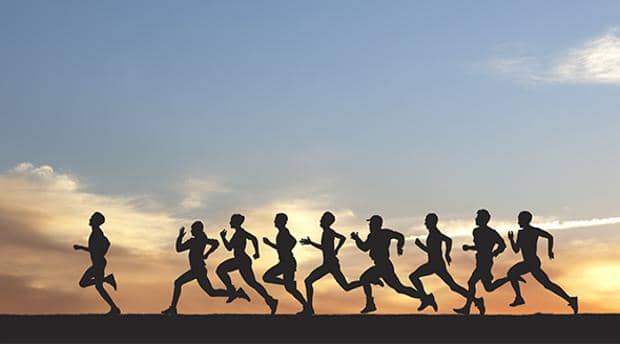
I am a slow runner. I want to run fast, and, in fact, there are times when I think, “Wow! I’m going so fast!” Then, I glance at my pace on my running app, and, no, I’m not going fast. The last time my husband filmed me as I crossed the finish at a race, I thought he was experimenting with the slo-mo feature on his iPhone. Those people who look so good when they run? I’m not one of those people.
But as I researched the issue, I learned that there are reasons runners should slow down. I don’t mean slowing down during this hot, humid weather, when the moisture in the air makes it difficult to breathe and the heat makes it difficult to regulate body temperature. And I don’t mean slowing down to avoid injury or aid recovery. I mean slowing down with the goal to make yourself a better and even faster runner.
“When you’re running slowly, and your injury risk is lower, you can run more often, more miles, and build up slowly,” according to Claire Bartholic, a coach at Runners Connect, an online community of runners and coaches. But running slowly also allows your body to improve the energy system most essential to running: your aerobic energy system.

Your body relies on a few different energy systems to get you up and moving. For any sustained movement, it uses your aerobic energy system, meaning it creates energy with oxygen. Oxygen helps the muscles convert fat, protein and glycogen (the form of glucose stored in your liver and muscles, which your body generates from the carbohydrates you eat) into energy. If you want to be able to finish a marathon, for example, or even a 5K or a run around the block, this is the energy system you want to develop, says Bartholic, who is a competitive masters athlete herself. And to develop it, you should run at a pace where your muscles can get plenty of oxygen.